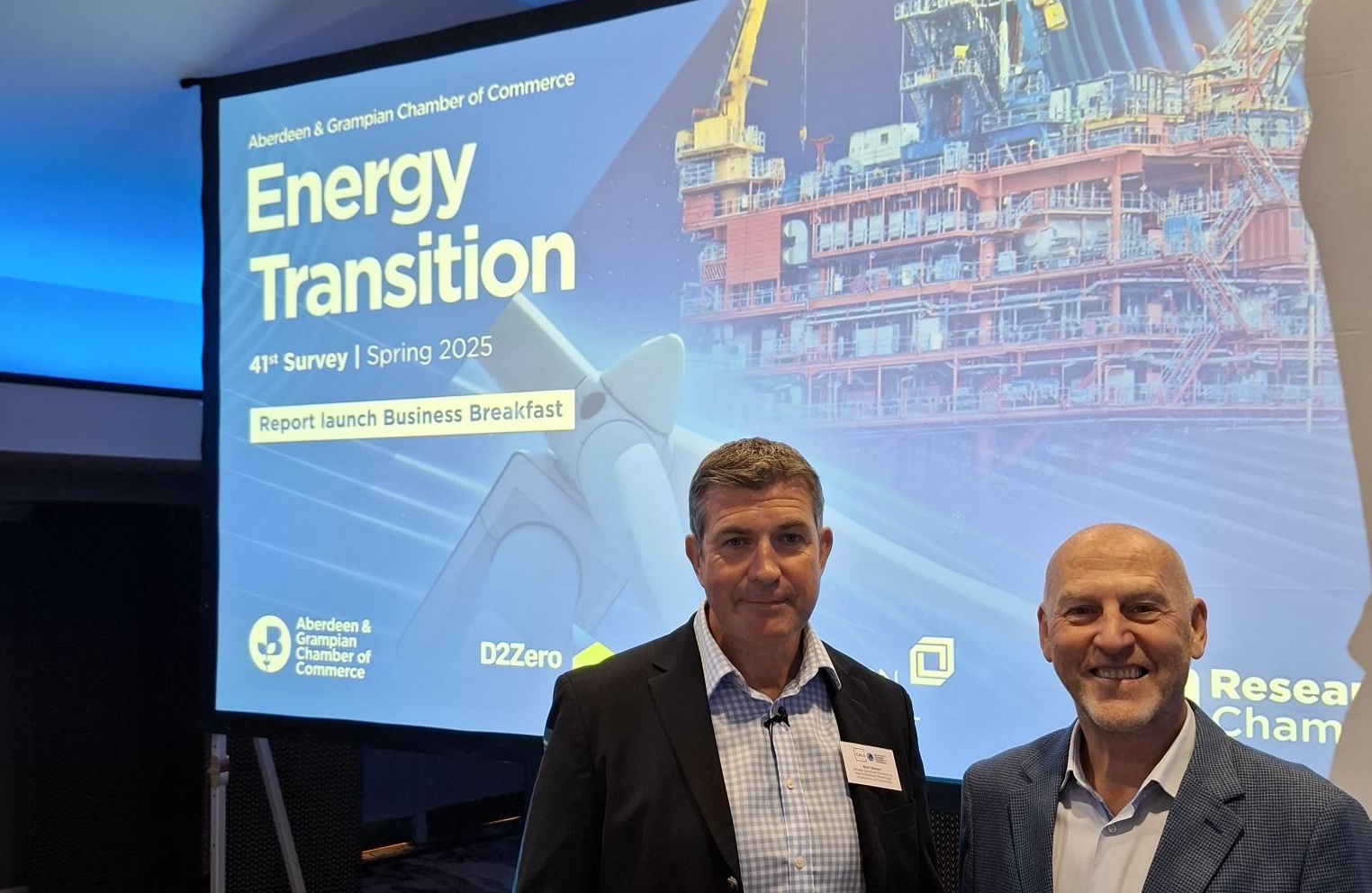Charting a sustainable path for the UK’s energy future
At Johnston Carmichael, we’re proud to support clients across the full breadth of the Energy sector and recognise the importance of helping our clients navigate any changes which may be on the horizon. That’s why we partnered with the Aberdeen & Grampian Chamber of Commerce to support their latest Energy Transition Survey. In this article, we reflect on some of the report’s key findings and what they mean for our clients and the sector as a whole.
The Energy Transition 41 report arrives at a defining moment for the UK’s energy sector. As we stand at the crossroads between traditional energy systems and emerging clean technologies, this comprehensive study reveals both the significant challenges and tremendous opportunities facing our nation’s transition. The findings demand our urgent attention and collective action.
At the heart of the report lies a fundamental tension: whilst 65% of energy businesses are actively or organically looking to diversify, only 33% of their current operations extend beyond traditional oil and gas activities. Even more concerning is the projection that this figure will reach just 50% by 2030 – far short of what is needed to meet our climate commitments and secure our energy future.
The barriers to progress are clear and multifaceted. Policy instability has emerged as the dominant concern, surpassing even oil price volatility in its impact on business decisions. The current landscape of unpredictable taxation regimes and protracted licensing processes is actively discouraging investment at precisely the moment we need it most. Meanwhile, the stagnation in renewables growth - particularly in offshore wind and carbon capture technologies - points to systemic issues in project approvals and infrastructure development that require immediate resolution.

Perhaps most troubling is the accelerating brain drain from our energy sector. With the majority of firms reporting significant staff losses to other industries or overseas markets, we are witnessing the erosion of the very expertise we need to drive the transition forward. This skills crisis threatens to undermine not just our current energy security, but our ability to compete in the emerging global clean energy economy.
The report also highlights a worrying disconnect between sustainability commitments and concrete action. While environmental, social and governance (ESG) principles are increasingly embraced in theory, only 34% of firms have established clear, time-bound net-zero strategies. This gap between aspiration and implementation risks leaving the UK behind as other nations accelerate their transitions with more decisive action.
Yet within these challenges lie tremendous opportunities. The UK possesses world-class energy expertise, a robust supply chain, and significant renewable energy potential. By addressing the barriers identified in this report, we can unlock these advantages to position Britain as a global leader in the energy transition.

The path forward requires bold, coordinated action across three critical areas:
First, we must stabilise our policy environment. The overwhelming support (82%) for an independent energy authority suggests a clear solution to the current cycle of short-term decision-making. Such a body could provide the consistent, long-term framework needed to guide investment and innovation.
Second, we need to dramatically accelerate our renewable energy deployment. This means not just setting ambitious targets, but removing the bureaucratic and infrastructural bottlenecks that currently constrain progress. The potential for offshore wind, green hydrogen, and carbon capture is enormous - but only if we create the conditions for these technologies to thrive. More reality less rhetoric.
Third, and perhaps most importantly, we must invest in our workforce. The transition will only succeed if we ensure workers currently in traditional energy sectors have clear pathways to opportunities in emerging clean energy industries. This requires comprehensive reskilling programs and regional transition plans that leave no communities behind.
The Energy Transition 41 report serves as both a warning and a roadmap. It shows us where we are falling short, but also points the way forward. The challenges are significant, but so too is the opportunity to build a cleaner, more secure, and more prosperous energy future for the UK.
The time for incremental change has passed. What we need now is the vision and courage to transform our energy system at the pace and scale required. This report makes clear that the stakes could not be higher - nor the potential rewards greater. Let us rise to meet this moment together.
Find out more
You can find out more about the report and it's findings here. If you would like to discuss any of the points mentioned in this blog, please don't hesitate to get in touch with a member of our Energy, Infrastructure & Sustainability team or fill out the short form below.


